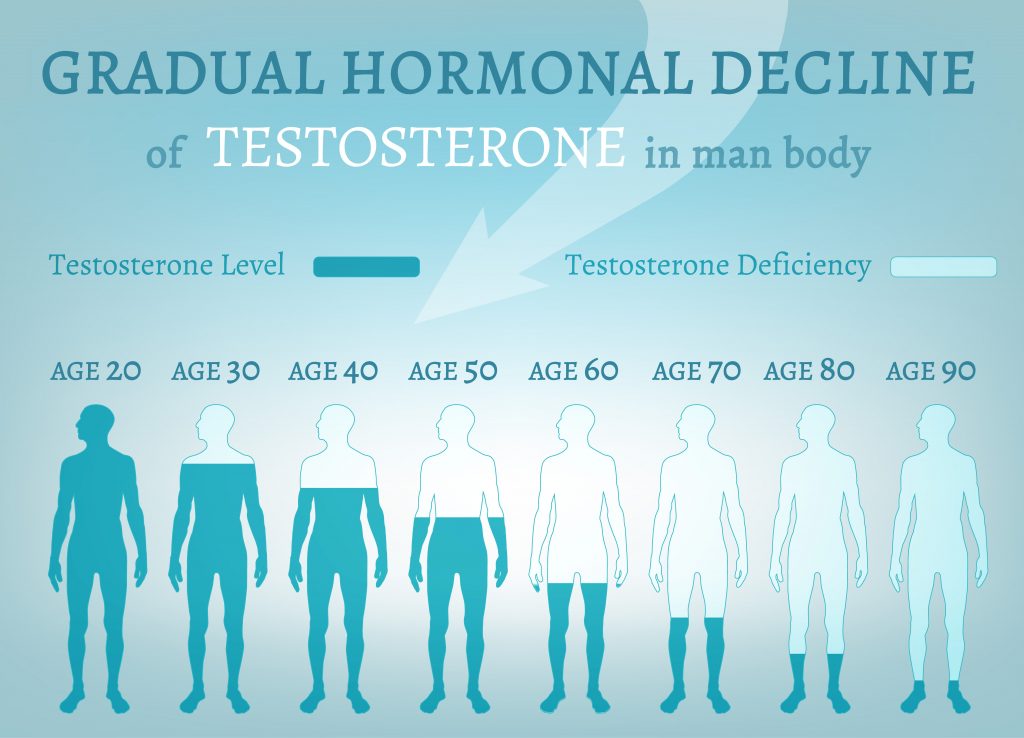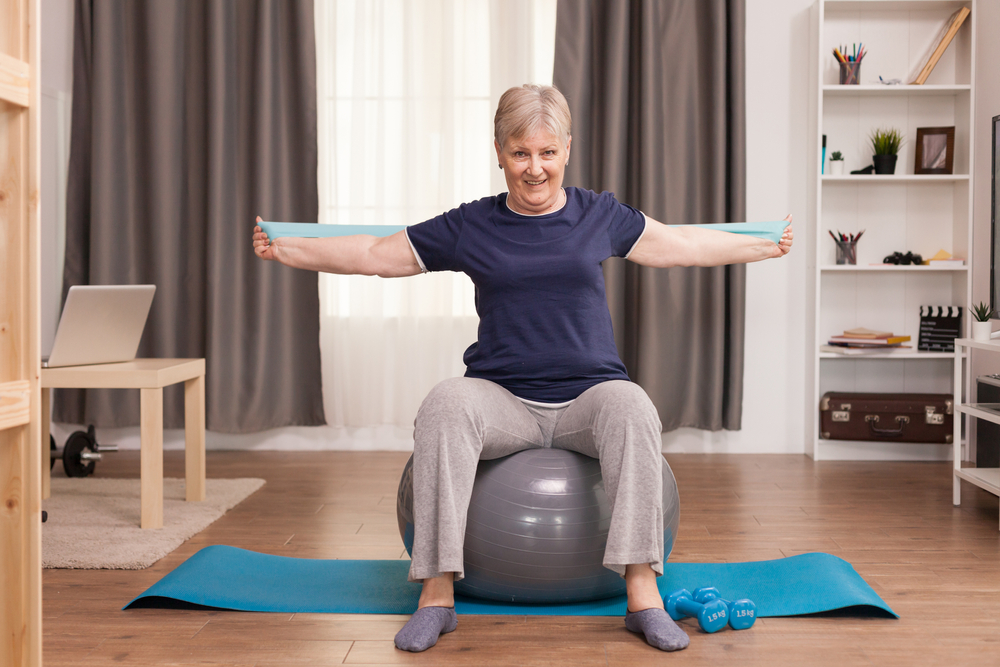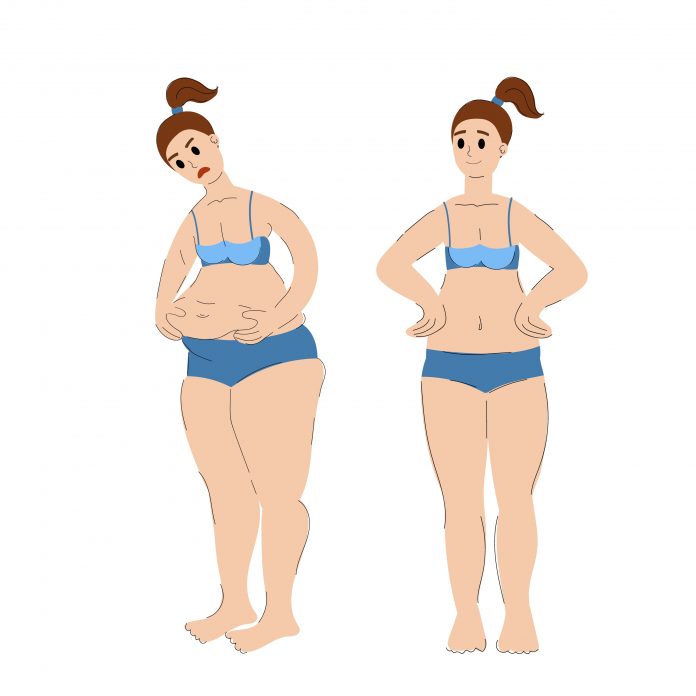Letting go of those few extra pounds at any age can be difficult, but the task seems more challenging, the goal even more unattainable, once you’ve crossed fifty. Ever wonder why it’s so?
Causes of weight gain after 50
Weight gain can occur at any age; there are a lot of factors that contribute. However, losing that weight is easier at a younger age. Once a person crosses 50, there are certain causes of weight gain which are tough to control, physiological changes in the body, which one isn’t even aware of.
Let’s see what some of them are…
1.Hormonal changes
Hormones are chemicals produced by certain glands in the body, and form a system called endocrine system. This system is crucial to the regular functioning of our body – it controls the appetite, digestion, mood etc.
Age, among other factors, affects the glands, causing them to either over or underproduce these hormones, causing a host of deficiencies and imbalances.
Menopause
The most common hormonal change seen in women, in which the ovaries produce less estrogen and progesterone than normal; the pituitary gland, trying to compensate, produces increased amounts of follicular stimulating hormone.
Menopause can affect women in different ways- mood swings, hot flushes, higher libido. It can also result in weight gain, especially around the abdomen.
Andropause
20 to 30 % of men in their 50s and more suffer- they show decreased levels of testosterone in their systems.
It can lead to decreased muscle mass, fatigue, chances of osteoporosis, depression- all of which tend to cause weight gain.

Hypothyroidism
The thyroid gland, located in the neck, produces hormones which control the body metabolism. Age reduces the production of these hormones, causing hypothyroidism, a deficiency that results in reduced metabolic rate, causing weight gain, among other symptoms.
Hormones controlling appetite
It has been observed that Ghrelin and leptin, the hormones controlling appetite and satiety, respectively, show an imbalance as age advances…it can cause one to feel hungry frequently, as well as reducing one’s satiety…you eat more, you gain weight.
2.Genetic
Studies show that genetics may be responsible for 50% of weight gain in the middle aged. Environment is probably responsible for the rest. Age naturally makes one sedentary, and an individual with a genetic pre disposition tends to gain weight faster.
3.Loss of muscle mass
Sarcopenia, or loss of muscle mass, affects about 10% of people over the age of 50. A sedentary life, less protein in the diet, stress, all contribute to it.
Muscle burns more calories than fat, and a reduction in muscle mass equals less calories burned by the body. It also makes one weak and unable to exercise as per the body’s requirements, leading to weight gain.

- Diseases –
Orthopedic conditions
Suffering from a condition such as gout or arthritis makes it harder to exercise, leading to weight gain.
Diabetes
People suffering from diabetes, either 1 or type 2, have a tendency to be on the heavier side. Also, insulin therapy, if prescribed, can cause weight gain, as insulin allows glucose to be absorbed in to the cells. Any excess glucose is converted to fat and stored.
5.Reduced metabolism
It is a well-known fact that our metabolic rate reduces with age. Though recent studies show it might not reduce at 50, but probably closer to 60 years of age, it does reduce.
A reduced metabolism means less use of calories and fat in the body, which, in turn, means weight gain.
6.Sedentary lifestyle
Age tends to make one slower. Whether it is joint complaints, low energy levels, lack of inclination, or a busy schedule, the time taken for actual physical activities reduces. Studies show that 60 to 80 %of people over the age of 50 lead a sedentary lifestyle. Less activity means less calories burned, which leads to weight gain.
7.Lifestyle changes
With age, come added responsibilities – family, children. The time you earlier had for yourself, has to be divided between work, family, children, social engagements. It can be difficult to take time out for exercising or following a diet which requires a lot of preparation, causing one to gain weight.
8.Sleeping habits
Our sleeping habits have an effect on our overall health, including our metabolism. Inadequate sleep has since long been associated with reduced BMR and weight gain.
Studies have shown that people who are sleep deprived tend to crave fatty or sweet food; they also seem to indulge in more frequent, larger helpings. This, obviously, leads to weight gain. Insufficient sleep also affects the body’s ability to regulate the appetite controlling hormones- ghrelin and leptin.
9.Depression
With our lifestyles being what they are, compounded by hormonal changes, depression is a common condition these days. It tends to pull one down, and inclination to actually work out, exercise, reduces. Depression can also make a person indulge in comfort food, load up on fatty, sweet delicacies. It can all cause one to gain weight.
10.Stress
Stress is a part of our lives…as we grow older, the reasons for stress increase. Jobs, deadlines, families, to name a few.
Stress causes our body to release adrenalin and cortisol, which increase fat storage in the body. Continued stress over a period of time can lead to a large quantity of fat being stored, causing weight gain.
11.Medication
The list of medicines that can cause weight gain, either by water retention, or slowing down metabolism, or causing hormonal imbalances, is fairly long.
Anti-depressants can affect the appetite center in the brain, giving you frequent and unexpected hunger pangs.
Steroids cause water retention in the body, causing weight gain.
Certain anti hypertensives, containing beta blockers, can lower the metabolic rate, leading to weight gain.
How does one lose the weight?
There are various methods you can try to lose weight- exercise, diet, lifestyle changes. Usually, a combination works best to get the desired results.
1.Exercise
Exercise is a great way to burn up calories, and goes a long way towards weight loss. Consistent exercise is suggested to keep eight in control, so you should choose the ones suited to you. Though vigorous exercises burn calories the fastest, it might be difficult to continue them over a long period of time; swimming, walking or cycling are good alternatives. At least half an hour of exercise for a minimum of five days a week is recommended.
2.Muscle strengthening
Muscle build up or at least muscle strengthening is very important to weight loss. The stronger your muscles, higher is the calorie count burned by the body.
3.Hire a trainer
The biggest hurdle to losing weight is finding the motivation and the inclination to work out…perform the last 10 sit ups, swim the extra lap. Having a trainer to talk you through them push you a bit more, is always beneficial.
4.Medication
Check the medicines you’re having. If they’re the ones causing weight gain, maybe you could get alternative medication.
5.Reduce the stress
Its easier said than done, but reducing stress is paramount to losing those extra kgs…try meditation, cooking, gardening- these are some of the activities that act as a stress buster.
6.Yoga
Yoga can make your body flexible and enable you to push it further, for exercises more vigorous in nature. It also helps you relax.

7.Resistance training
Resistance training is any form of exercise using resistance which the muscles need to overcome. It could be weights, bands or your own bodyweight.
It has been observed that repetitive resistance or strength training leads to muscle build up, in turn burning a large number of calories. The “after burn” effect of this exercise also helps utilize calories and burn fat.
An added benefit is that the more the muscle build up, higher is the RMR (resting metabolic rate) or the rate at which a resting body burns fat. It is thus one of the most consistent methods of weight loss.
8.Hormonal therapy
If your weight gain is due to a medical condition- hypothyroidism, insulin resistance – you should take the recommended medicines, which wll help treat the disease and reduce weight.
9.Sleep
You should try to sleep for 6 to7 hours a night, with amybe a half hour nap in the afternoons. Sleep helps set your circadian rhythm, and helps keep the appetite hormones (ghrelin and leptin) in check.
10.Check weight
Make it a habit to weigh yourself at least twice a week, if not more. It’ll give you an idea if you’ve started to put on weight. It is always easier to lose a few kgs, if you notice it early on. Trying to lose a lot of weight can become cumbersome and difficult.

11.Food habits-
Don’t skip your breakfast
The age-old advice of breakfast being the most important meal of the day still holds rue…never skip it. Its ok to keep it simple- a bowl of oats, some fresh fruit, a glass of milk. But do have something as you begin your day.
Cook right
Try to use the methods of cooking which use less fat…boiling, broiling, grilling.
High protein
Proteins are a difficult food to digest- the body utilizes a lot of calories to break them down. Also, proteins are known to stimulate secretion of leptin, the hormone that controls satiety – even small portions can keep one feeling full for hours. Eggs, chicken, fish are all rich sources of protein. cottage cheese, Cheese, tofu, mushrooms, lentils are good vegetarian sources.
Carbohydrates
A common perception is to avoid carbs in order to achieve weight loss. However, carbs are a source of energy, and shouldn’t be completely eliminated from your diet.
It is suggested that about 40% of your diet should be carbs, focusing on leafy veggies and fruits, avoiding cakes, cookies etc.
Healthy snacks
Try opting for a fruit or handful of nuts the next time you feel like munching…They’re healthier, with fewer calories, no added salt and sugars.
Fruits and veggies
Low in calories, high in multivits, fruits and veggies are ideal foods for weight loss. You can have them raw, or as salads or stir fry’s. Experiment with them to get some interesting salads or smoothies.
Whole grains
Whether its wheat, barley, or oats, grains are always good for you. Studies have shown that people consuming whole grains, as opposed to refined ones, tend to lose more weight, at a faster rate.
Beans
High in proteins well as fiber, these are very good for weight loss. Not only the proteins and starch in them utilize fat to get digested, they also produce gut bacteria which help metabolism.
Foods to avoid
Sugar
Excess sugar in any form gets stored in the body as fat, leading to weight gain. Besides, it can cause insulin spikes, which, over a period of time, also cause an increase in weight.
Salt
Salt, when taken in excess, can cause fluid accumulation in the body, increasing body weight.
Reduce drinks
Aerated drinks and packed juices invariably have high concentrations of sugar as well as preservatives, both of which can result in weight gain, if consumed in large quantities.
Alcohol, too, is high in sugar and empty calories. Besides, it can increase cravings for sweets and fatty food, causing weight gain.
12.Intermittent fasting
It may sound difficult, but intermittent fasting is actually quite easily achieved. Start by fasting for 8 to 9 hours, having small portions of healthy food. Not only are you giving your system a break from constant eating, you can also limit your portions.
13.Consult a doctor
At times, the weight just keeps on adding, in spite of your best efforts. There is a chance there could be an underlying medical condition causing the weight gain, requiring medical or surgical intervention. Do not hesitate to approach a doctor with your concerns.
With a little bit of discipline, exercise and a good diet plan, losing weight, even at the age of 50 or more, should be a manageable task.








